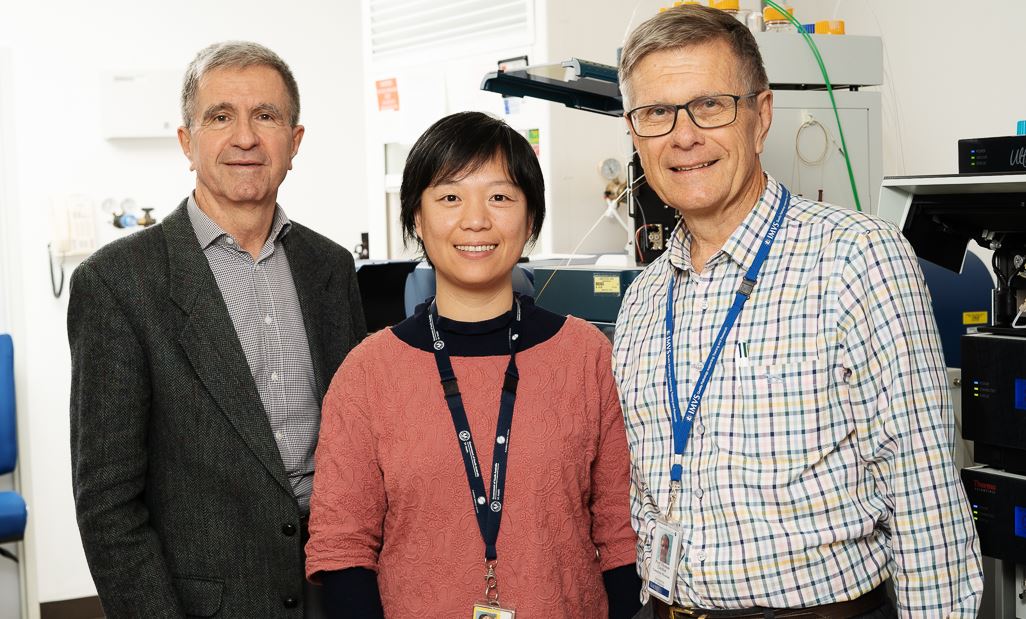The findings suggest that protective COVID-19 vaccines should ideally generate stronger antibody responses than natural infection.
The research, led by Professor Stephen Kent from the Doherty Institute in collaboration with the University of New South Wales Kirby Institute and Flinders University, has been published in high ranking journal Nature Communications,
The team, including University of Melbourne Dr Jennifer Juno, a Senior Research Fellow at the Peter Doherty Institute for Infection and Immunity (Doherty Institute), have been investigating how the immune system, particularly B and T cells, responds to the COVID-19 spike protein.
The spike protein enables the SARS-CoV-2 virus to attach and enter cells in humans and is crucial in inducing neutralising antibodies to protect from re-infection. B cells are responsible for producing the antibodies that recognise SARS-CoV-2, while T cells play an important role in supporting the development of the B cell response.

Dr Juno said one of their striking observations was that over the four months they were tracking the patients, the number of B cells recognising the spike protein actually increased in almost all of them, regardless how severe their disease was.
"This is interesting because our work and other recent studies suggest these B cells are continuing to accumulate and potentially evolve over time. That should be useful for protection in the event of another exposure in the sense that those 'memory' cells should be able to be activated again," Dr Juno says.
"While we still don't know how much antibody you actually need to be protected, either through a vaccine or through natural infections, the recent results from phase 3 vaccine trials should soon allow us to understand how long natural immunity should last.
"In addition, what remains to be understood is whether these changes in B cell memory can help the immune system to recognise and be protected against new SARS-CoV-2 variants that are currently emerging."
Dr Juno said recent data on the leading vaccines show they are eliciting at least double the antibody levels as natural infection, which is very encouraging.
Flinders University College of Medicine and Public Health researchers Dr Jing Jing Wang, with Professor Tom Gordon and Microbiology and Infectious Diseases expert Professor David Gordon, are co-authors on the paper.
Their team at the proteomics research centre at Flinders University have performed the world's first mass spectrometric sequencing study of blood serum COVID-19 antibodies against spike protein in recovered patients.
"Having identified their specific 'barcode' amino acid sequences – by matching these proteomic sequences with cloned 'memory' B cells specific for spike protein isolated by the Doherty team – we then performed the world's first quantitative proteomic analysis of spike antibody clones in order to track individual spike antibody clonotypes over time," says Dr Wang.
The novel proteomic technology developed at Flinders University is a spinoff or pivot from the Flinders team's world-leading work on autoimmune diseases.
"The latest research has considerable promise as a method for tracking different antibody clones that arise after primary COVID-19 infection, and for tracking the durability of vaccine responses to the critical spike protein in future studies," Dr Wang says.
The research was supported with technical support from Proteomics Facility leader Associate Professor Tim Chataway, and a 2020 Flinders Health and Medical Research Institute (FHMRI) COVID-19 Research Scheme grant.
University of NSW Professor Miles Davenport says his team at the Infection Analytics Program at the Kirby Institute was involved in the analysis and modelling of the experimental data coming from the University of Melbourne and Flinders Labs.
"We were interested in calculating the 'half-life' of different immune response as they declined after infection," he says.
"We found that responses tend to decline more rapidly soon after infection, and then become more stable.
"We used these half-lives to develope a simulation to predict how long immunity might last under different assumptions," Professor Davenport says.
The Peter Doherty Institute for Infection and Immunity is a research collaboration between The University of Melbourne and The Royal Melbourne Hospital to find solutions to prevent, treat and cure infectious diseases and understanding the complexities of the immune system. The initiative brings leading scientists and clinicians together to improve human health globally.
The study was funded by NHMRC, MRFF and the Victorian Government.
The paper, entitled 'Evolution of immune responses to SARS-CoV-2 in mild-moderate COVID-19' (2021) by Adam Wheatley, Jennifer Juno, Jing Wang, Kevin Selva, Arnold Reynaldi, Hyon-Xhi Tan, Wen Shi Lee, Kathleen Wragg, Hannah Kelly, Robyn Esterbauer, Samantha Davis, Helen Kent, Francesca Mordant, Timothy Schlub, David Gordon, David Khoury, Kanta Subbarao, Deborah Cromer, Tom Gordon, Amy Chung, Miles Davenport and Stephen Kent has been published in Nature Communications DOI:






